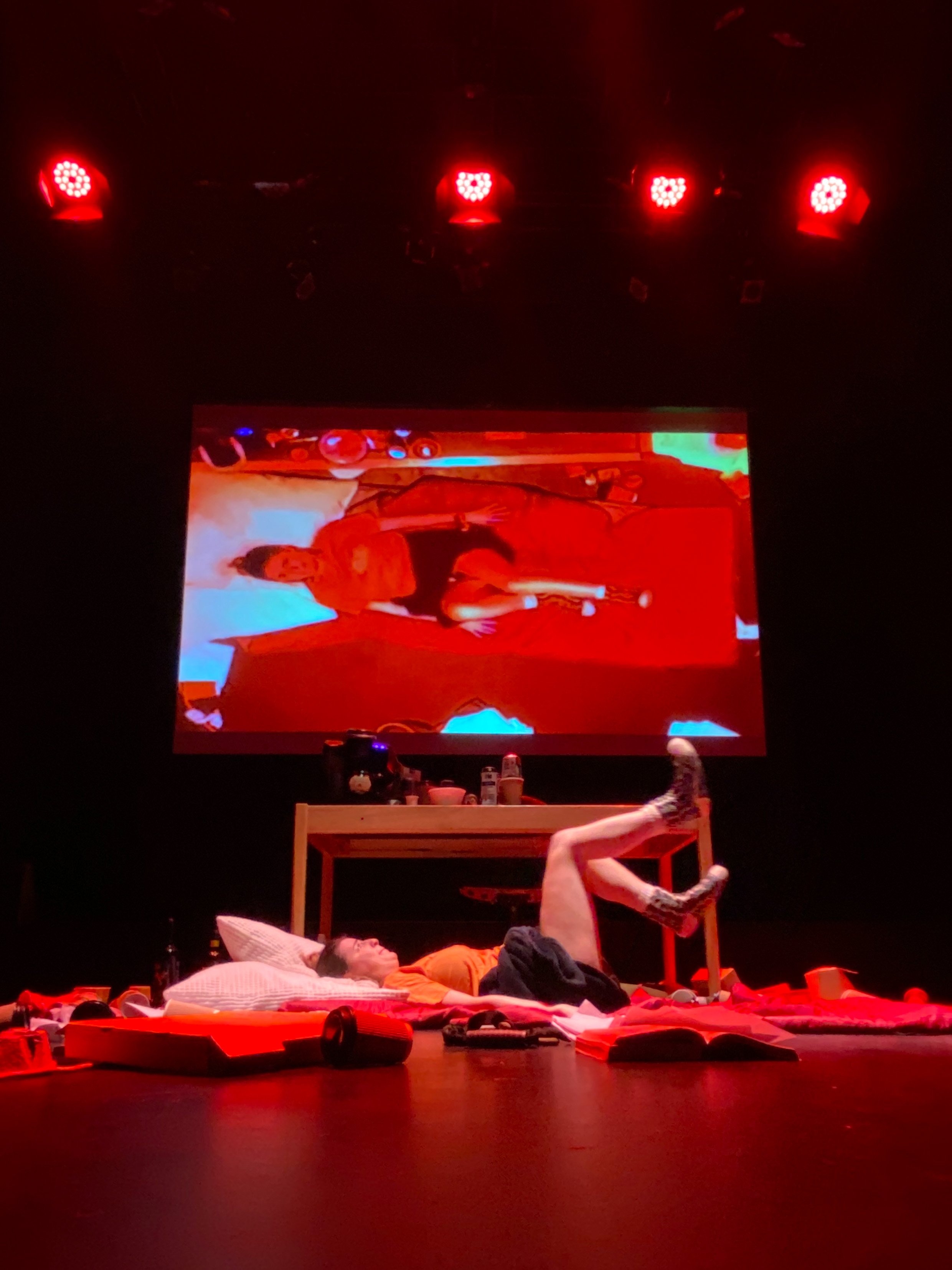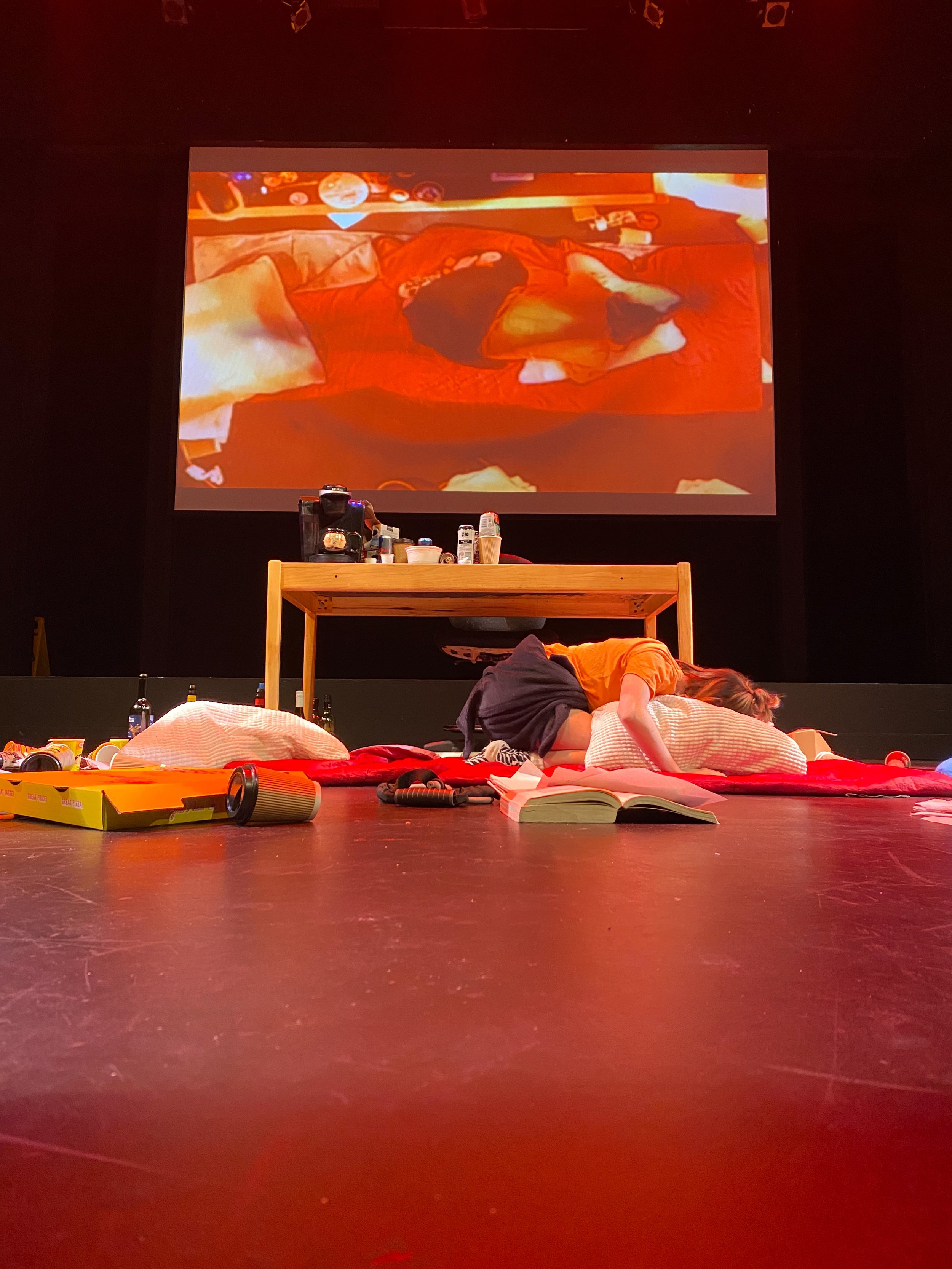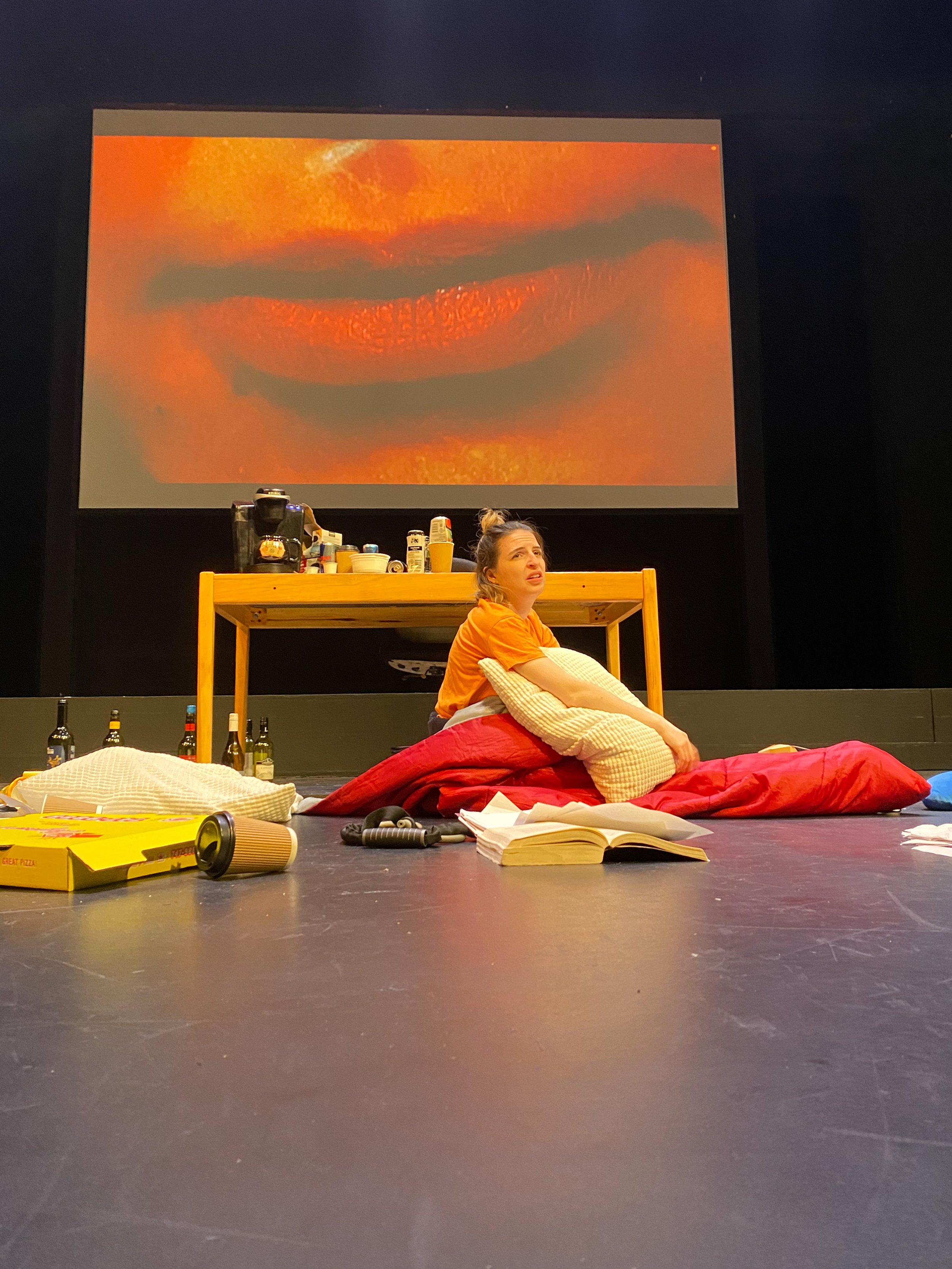DARLING
About The Project
Jenn Addesso and Brooke Barnes first introduced me to Darling’s archive in 2019. A hand-written diary and three cassette tapes were found by Jenn, in a manilla envelope in an old filing cabinet, purchased by her parents as surplus from atheir local Catholic school board surplus sale. The envelope and its contents were found left behind, under the bottom drawer. In addition to our initial reaction to the contents of this archive, we wondered, who is Darling? And why would she leave behind such personal material for someone else to find? Was this a careless mistake, or perhaps a subconscious act of sharing this material with someone else? We had plenty of questions about this archive, including and the fate of Jenn’s fate in finding it, but our most pressing question was, should we make a performance from it?
We quickly agreed that we should try. Names have been changed to protect those named in the diary; George is known only by his first-name, and Darling is an otherwise anonymous endearment spoken only by George on the tapes. We hoped this anonymity would allow enough for us to share our impressions of this archive, and why something from 1976 seems significant to us today.
Our process of devising this performance has taken over two years, in part due to the pandemic, and its many obstacles, and in part due to the many different ways we explored our’ve approached to representing a way to represent our relationship to Darling and our relationship to the archive. From my perspective, a recurring impression that has emerged from our work is that of an archive fever dream. In this, I am borrowing the phrase “archive fever” from literary theorist, Jacques Derrida, who wrote an essay in 1994 entitledThe Concept of the Archive: A Freudian Impression. In part, Derrida’s focus in this writing is on how the structure of the archive – who creates it, orders it, and governs its access to the public – controls its contents. But he was also interested in how the different forms of storage and dissemination change our understanding – literally, our public memory – of the past.
Derrida returns at length to the writings of Sigmund Freud in order to analyse the connection between archives and the structures of human memory. He offers an etymological study of the concept of the archive, tracing the concept to the Greek word arkhē, which, he explains, means both commencement and commandment. He sees this etymology as important because it binds the archive historically to government, power and law – and by this, Derrida is essentially saying powerful men.
So, given this kind of ‘house arrest’ of the archive, what happens if it is released from its confines?; In the case of Darling’s manilla envelope, what happens when it escapes the filing cabinet, and ends up in the hands of theatre-makers? Well, what we discovered is that the text of this diary and the words of these tapes become something we can embody, something we can feel and think about through performance. We’ve found ourselves trying to engage in the messy and complicated process of securing Darling’s thoughts and George’s words in the ritual repetition of a dissertation examination. Or, more accurately, a fevered dream of a dissertation exam.
The idea of creating a graduate student defending her dissertation on marriage and family norms came in part from working in the Theatre of the Arts, a space on a university campus that can easily feel like a lecture hall, and from the act of examination that we’ve been doing on the archive for more than two years. We wondered, what exactly does it mean to be examined in a dissertation defence? In particular, what does it feel like to be the subject one ofunder examination? In a sense, this, I think we were trying to put ourselves in the place of the contents of the manila envelope, to put ourselves under scrutiny as a means of, in our process of scrutinizing Darling.
With the inspired contributions of our designers – Gary Kirkham, Colin Labadie, and Chelsea Vanoverbeke – we have been able to flesh out the bones of Darling’s archive into a sort of submedial dreamscape; where sound, visuals, and light work to reveal a what might be considered the subconsciousness drives within what we are seeing and hearing in Darling’s archive. Through various approaches to digital projection and the manipulation of sound, manipulation we hope that you as an audience noticethe attention of our audience will be directed toward the gaps and fault lines in the material you see and hear, and that your perception of what’s real in this production is one among many variables, which are all set in relation to one another through various media.
In keeping with the educational space we are creating in this production, some of you will have been given a manilla envelope when you arrived, please have the dated diary entry in this envelope close by, as your date will be called during the performance. When your date is called, it will be your turn to give voice to one of Darling’s entries.






